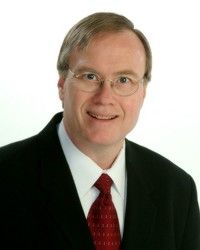Think how commissions distort expertise: What if your medical doctor earned commissions from the medicines prescribed?
Don’t let clients or journalists discount the value of professional expertise. In a world where fans think nothing of suggesting a $10 million dollar bonus for their favorite football player (surely an expert at throwing or catching or tackling), it’s ridiculous to suggest that investment experts offer little value.
In fact, this is a natural variation of the old do-it-yourself argument. The root lies in fear. Fear that a consumer is easy prey for a trained salesperson. Simply, our expertise is devalued because so much of it has been false expertise. For much of the industry, expertise was just a ruse to sell products.
Think how commissions distort expertise: What if your medical doctor earned commissions from the medicines prescribed? What if doctors gave away free office calls, but kept half of the cost of each prescription? What if one antibiotic paid a higher commission than another? What if one hospital paid your doctor $1,000 cash for each admission, while a different one paid $500?
Investing doesn’t have to be this way, either. Take the commissions away, and the false expertise disappears, too. The professional now lives or dies by what he or she knows. False expertise won’t survive in a competitive marketplace. Like an accountant or lawyer, bad reputations kill bad professionals.
Expertise is an overused word that almost lacks meaning today. Still, it’s a very real concept, and necessary for investment success.
You’d not know it from the consumer press, but investing is extremely complex. There are thousands of choices, with variations of each. No one person can know everything that’s necessary. So all of us, even professionals, rely on people with specialized knowledge.
Just think about some of the cross-discipline areas with impact on personal finance – accounting, tax, law, insurance, purchasing, and banking, just to name a few. To be successful, we need a smattering of knowledge in each of these areas. When a critical situation occurs, we may require substantial knowledge in one or more of these areas.
Consider the geometric progressions in personal finance. Take the subject of retirement planning, and consider some variables. A person’s age, income, health, spouse’s health, genetics, children, geographic location, and lifestyle are important. Add in the level of investment sophistication and risk tolerance and you’ve created a very complicated matrix for decision-making.
Education expenses? How old are the children or grandchildren? How are their grades? What field(s) are they likely to study? Public or private college? In state or away? Any other sources of college funding?
Ponder the complicated matrix for each of these goals. Clearly, no one can really do-it-themselves. Everyone needs additional help.
Another point is the depth and breadth of personal knowledge. In legal circles, a Last Will and Testament provides a great example. In the course of our lives, most of us will encounter very few Wills. A parent, maybe, or another older relative. We may eventually ask our family attorney to help us create one of our own. All told, our experience with these important legal instruments is a few brief encounters over the course of our entire life.
An attorney with any kind of estate planning practice has seen hundreds of wills, including ushering them through the complete probate process. They’ve witnessed family feuds, estate tax debacles, and contested provisions. They have practical experience way beyond anything we’ve personally encountered.
That attorney brings those professional experiences to our legal documents.
That’s why expertise is important. Could we buy a “fill in the blank” Last Will and Testament from the office supply store? Of course we could. Would it do what we want with the least amount of hassle and expense? That’s a different story.
I remember a magazine article where the author bragged of having written his own will. He ranted against the high cost of lawyers (for clarification, I’m not an attorney), and professed that he’d saved hundreds of dollars. And the whole process worked just fine, according to him.
What he didn’t say was that we’d not really know how well it works until after his death. For his family’s sake, I hope he’s right. I hope it flows effortlessly through the probate court and that no one contests the provisions. I hope they avoid estate tax snags and that everyone is comforted by the results. And, again for his family’s sake, I hope they don’t find out for a good long time.
Similar issues apply to investing. Even if a client knows a lot about investing, that knowledge is limited to one situation, or perhaps a few others. Essentially, it’s one family during one time frame with a single set of investment objectives.
I see this most often during bad markets. New clients visit our offices and recount their struggles. In most cases, earlier investment cycles have been very good to them. They learned (the hard way) that lessons taught during the good times aren’t much help during bad.
A good advisor knows when to request outside advice or service. In any field, there are dozens of professionals to choose from. But that doesn’t mean they have equal talent, capability, or effort. A good advisor knows the strengths and weaknesses of each, and operates as a filter mechanism for clients. One sign of expertise is a willingness to bring outsiders to the team when necessary to accomplish objectives.
This willingness may include recommending local professionals such as attorneys, accountants, or specialized insurance brokers. But it may also include institutional custodians (Schwab, Waterhouse, Fidelity) or specialized investment managers. It might include real estate managers, art specialists, or antique dealers. As we’ve already discussed, there are hundreds of variables for each client situation.
Good investment advisors see hundreds of family situations over several market cycles. They are involved in all aspects of client finances – retirement decisions, mortgage issues, portfolio allocations, cash flow challenges, kid’s or grandkid’s educational needs.
Don’t let clients or journalists discount the value of professional expertise.
 Dan Danford, MBA, CRSP®
Dan Danford, MBA, CRSP®
Dan Danford, a professional who began his investment career as a bank trust officer, has been advising clients on how to preserve and manage wealth for over 20 years. He was one of the founders of The Trust Company of St. Joseph, a nationally recognized Missouri-chartered trust company. He then went on to form his own commission-free investment advisory firm, Family Investment Center in 1998.
Dan feels strongly that a commission-free firm offers the best option for most people to receive independent, objective advice at reasonable rates, with a high level of personalized service. He favors solution-based planning and proven investment strategies. With his financial expertise and investment management experience, he helps clients achieve their financial goals while providing them peace of mind, convenience, economy, and simplicity. Dan serves a wide range of clients, but especially enjoys working with and educating families, nonprofit groups, and company retirement plans.
Dan has written extensively on investment-related topics and his articles have appeared in a variety of professional and general interest magazines. He has also written and published two books on investing.
Dan has taught personal finance and investing at Missouri Western State University and has been a presenter at local, regional and national workshops and conferences. He has also served on the boards of a number of civic and professional organizations. Dan is an Eagle Scout and has served as a Loaned Executive for the United Way. He was honored with the 2003 Missouri Western State University Distinguished Alumni Service Award.
Dan is a graduate of Missouri Western, and holds an MBA from Northwest Missouri State University. He is also a Certified Retirement Services Professional®, a designation awarded by the Institute of Certified Bankers.
Areas of Expertise
• Portfolio Design
• Asset Management
• Investing for Non-Profits
• Investing for Women
• Guidance for People in Transition
• Independent Advice for Individuals and Families
Education/Certification
• BSBA, Missouri Western State University
• MBA, Northwest Missouri State
• Certified Retirement Services Professional®
Books Authored
• May I Help You? Why You Need a Fee-Only Investment Advisor (Infinity Publishing, 2004)
• Million Dollar Management: Simple Lessons to Use Wealth Management Principles for Your Family Investments (First Books Library, 2002)
Media Resource
• New York Times, Chicago Tribune, Kansas City Star, St. Joseph News-Press, St. Joseph Telegraph, Business Week, MorningstarAdvisor, Kiplinger’s
• KQTV Television (ABC)
• 100+ articles for trade journals, magazines
and newspapers
Boards/Organizations
• Board of Governors – Missouri Western State University
• St. Joseph Area Chamber of Commerce
• St. Joseph School District Foundation
• United Cerebral Palsy, Buchanan County
• Phillips Theological Seminary


